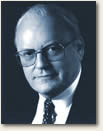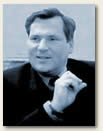General information
 "... a House for Germans, Poles and other friends and neighbours, which serves the purpose of dialogue on where we come from, where we are and where we are going to...
"... a House for Germans, Poles and other friends and neighbours, which serves the purpose of dialogue on where we come from, where we are and where we are going to...
from a speech by the President of the Federal Republic of Germany during the opening ceremony at the House
 "...a House, by nature, is friendly to man. It is a place where he wants to feel easy and safe..."
"...a House, by nature, is friendly to man. It is a place where he wants to feel easy and safe..."
from a letter by the President of the Polish Republic to guests of the opening ceremony at the House
The House for Polish-German Co-operation (HPGC) is a non-profit non-governmental organisation, a union of associations gathering a number of Polish and German non-profit organisations and institutions. The House derives its existence from the German Friedrich-Ebert Foundation that was active in the region of Upper Silesia since 1992 until the end of 1997. Aiming at constituting the Polish-German cooperation on partnership basis, German and Polish partners decided to found a bilateral, Polish-German organisation. The House for Polish German Co-operation was officially opened in February 1998 in the presence of the President of the Federal Republic of Germany Prof. Roman Herzog and - on behalf of the Polish President - Prof. Danuta Huebner, head of his Chancellery.
The following Polish and German organisations and Institutions co-operate within the union:
- The Union of German Social-Cultural Associations in Poland
- Katowice Chamber of Commerce and Industry
- Regional Polish-German Association in Gliwice
- Self-governmental Association in Lesnica
- Young Democrats Association in Opole
- Regional Chamber of Industry and Commerce in Gliwice
- German Educational Association
- Polish Association of the German Language Teachers
- Association for the Co-operation in Regional Energy Market, Katowice
- The Union of German Minority Youth in Poland
- GTZ German Agency for Technical Co-operation
- German-Polish Association - Federal Union
- Friedrich Naumann Foundation
- Friedrich Ebert Foundation
Through organising conferences, seminars, study-trips and publications the House co-operates with Polish, German and European partners in the following fields: Polish accession to the European Union, development of the civil society in Poland, ethnic minorities (especially German minority in Poland), intercultural dialogue, multiculturalism, local and regional sustainable development, trans-border co-operation, development of self-governmental administration (decentralisation), development of democratic structures (e.g. through supporting of NGOs'), protection of natural environment. Very important elements of the House's activity are projects done for and in co-operation with youth.
Projects to support the accession of Poland to the European Union belong to the priorities of the House's activity. For the past years we have realised numerous events devoted to that topic such as conferences, seminars, study-tours, competitions, debates, publications. At the beginning of 1999 the House established a special unit within its structure called "European Centre". The aims and tasks of the Centre's activities are:
- to provide professional information on the EU and the process of EU enlargement
- co-operation with local and regional authorities to support their active participation in the accession
- preparation of regional and local partners for participation in structural funding within the framework of the EU-regional policy
- education and assistance for accession
- evoking better understanding and support for the integration of Polish society
- assistance in acquiring support through European programmes
- assistance in application procedures
- events (conferences, seminars, study-tours) on varies aspects of EU policies, e.g.: regional policy, common market and euro, competition law, restructuring of old industrial regions, social policy, women and youth policies, etc.
- support for co-operation of regions (voivodship Opole - Rhineland-Pfalz, Saxony, voivodship Silesia - North Rhine-Westphalia) transborder co-operation (Poland with the Czech Repub-lic)
Primarily we address our activities to:
- local and regional authorities
- non-governmental, non-profit organisations
- German minority and other national minorities in Poland
- partners in the field of local and regional development
- youth and youth organizations
- social partners.
Our tools of cooperation are:
- know-how and experience in realising international projects
- modern infrastructure and technical equipment
- hi-tech means of communication
- broad international contacts.

